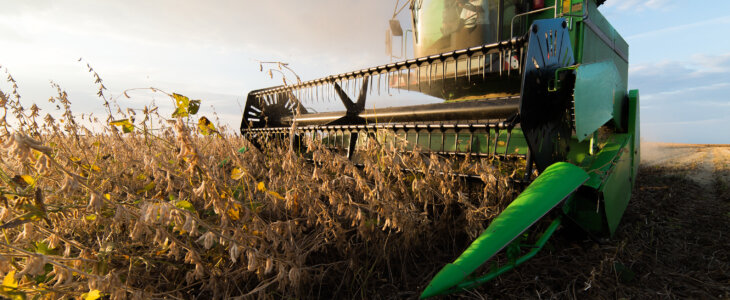Agriculture is one of the most dangerous industries in the U.S., with farm equipment accidents being a leading cause of injuries. From tractors and combines to plows and augers, these machines are important for farm work but can also be deadly if mishandled or poorly maintained. If you’re injured by farm equipment in an agricultural accident, understanding whether you’re covered for your injuries is critical. This blog from The Payne Law Group will explore the common causes of farm equipment accidents, the types of coverage available, and your legal options for seeking compensation.
Common Causes of Farm Equipment Accidents
Farm equipment accidents can happen in various ways, often leading to severe injuries. Some of the most common causes include:
- Equipment Malfunctions: Farm machinery requires regular maintenance and upkeep to function correctly. When equipment fails due to poor maintenance or defective parts, serious accidents can occur.
- Operator Error: Many agricultural accidents result from human error. Operators may lack proper training, act negligently, or fail to follow safety protocols, leading to dangerous situations.
- Lack of Safety Measures: Farm equipment is often designed with safety features, but missing or malfunctioning guards, safety switches, or emergency shut-off systems can turn even routine tasks into dangerous situations.
- Environmental Hazards: Farm environments are filled with potential hazards that can contribute to accidents. Uneven terrain, poor weather conditions, and cluttered workspaces increase the risk of equipment accidents.
Types of Injuries Sustained in Agricultural Accidents
Farm equipment accidents can cause many injuries, from minor cuts to life-threatening trauma. Some of the most common injuries include:
- Crush injuries: Being pinned by heavy machinery or trapped between equipment.
- Amputations: Loss of limbs due to equipment malfunctions or accidents involving sharp or moving parts.
- Traumatic brain injuries (TBI): Head injuries from falls or being struck by equipment.
- Spinal cord injuries: Damage to the spine from falls or heavy machinery accidents.
- Broken bones and fractures: Common in accidents where machinery rolls over or collapses.
The severity of these injuries often requires long-term medical care, making it important to understand what compensation you may be entitled to.
Determining Coverage: Workers’ Compensation
If you’re an agricultural worker injured by farm equipment, your first line of coverage is likely workers’ compensation. This form of insurance is designed to cover medical bills, lost wages, and rehabilitation for workers injured on the job.
Workers’ Compensation Overview
Workers’ compensation provides essential coverage for most agricultural employees injured during work. It covers:
- Medical expenses related to the injury
- A portion of lost wages while recovering
- Rehabilitation or disability benefits if the injury causes long-term damage
Workers Not Covered by Workers’ Compensation
While workers’ compensation covers many agricultural workers, there are exceptions:
- Independent contractors: Workers classified as independent contractors may not be eligible for workers’ comp.
- Migrant or seasonal workers: Depending on the state, some migrant and seasonal workers may not have the same legal protections and access to benefits.
If you fall into one of these categories, other legal options may still be available.
Liability Outside of Workers’ Compensation
In some cases, workers’ compensation may not provide sufficient coverage, or the injured party may not qualify. If that’s the case, you might be able to pursue other legal avenues.
Third-Party Claims
If someone other than your employer is responsible for your injury, you may have grounds for a third-party claim. This could include suing the manufacturer of defective machinery or a negligent subcontractor who caused the accident.
Product Liability Claims
When faulty or defective equipment causes injury, you may be able to file a product liability claim against the manufacturer. There are three main types of product liability claims:
- Design defect: The equipment was inherently dangerous due to a flaw in its design.
- Manufacturing defect: The equipment became dangerous due to an error during production.
- Failure to warn: The manufacturer failed to provide adequate warnings or instructions on the safe use of the equipment.
Proving a product liability claim can be complex and requires evidence showing that the defect directly caused the injury.
Legal Options for Non-Workers Injured by Farm Equipment
While many farm equipment injuries happen to workers, others are injured by farm machinery in different circumstances. Here’s what non-workers need to know:
- Visitors to Farms: If you were injured by farm equipment while visiting agricultural property, you could file a premises liability claim. Farm owners are required to maintain a safe environment for visitors, and failure to do so could make them liable for injuries.
- Drivers Injured in Farm Equipment Accidents: Farm equipment is often slow-moving and can cause severe accidents on roadways. If you were injured in a collision with farm machinery, you might have a personal injury claim against the equipment operator or owner.
Contact Our Bryan and College Station Agricultural Injury Attorneys Today
If you’ve been injured by farm equipment, don’t navigate the complex legal process alone. At The Payne Law Group, we understand the challenges faced by agricultural workers and those injured on farms. Our experienced attorneys can help you explore your options, whether through workers’ compensation, third-party claims, or product liability lawsuits. Contact us today for a free consultation, and let us help you get the compensation you deserve for your injuries and losses.
